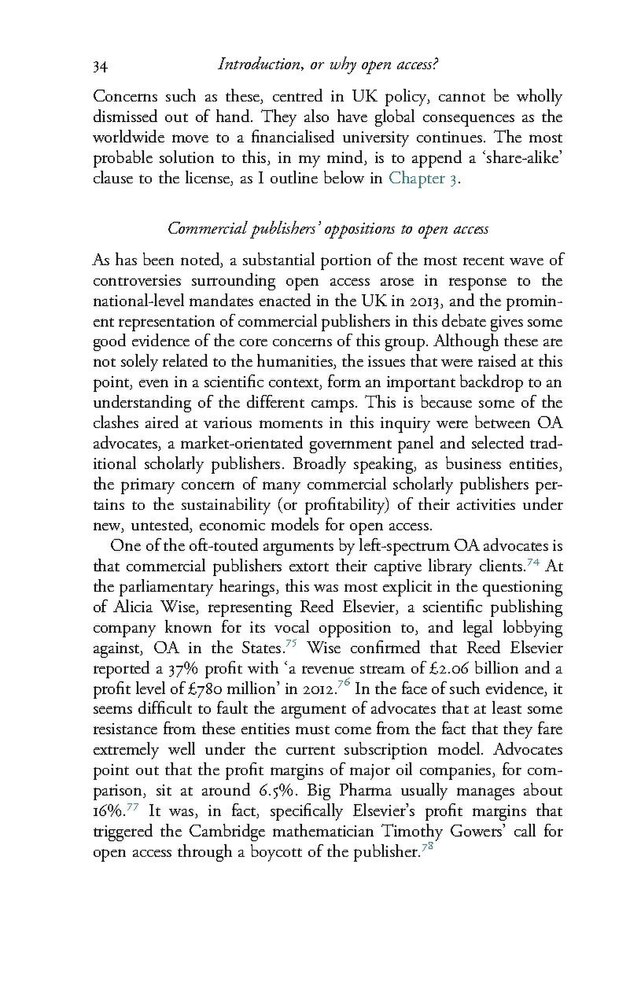Concerns such as these, centred in UK policy, cannot be wholly dismissed out of hand. They also have global consequences as the worldwide move to a financialised university continues. The most probable solution to this, in my mind, is to append a ‘share-alike’ clause to the license, as I outline below in Chapter 3.
Commercial publishers’ oppositions to open access
As has been noted, a substantial portion of the most recent wave of controversies surrounding open access arose in response to the national-level mandates enacted in the UK in 2013, and the prominent representation of commercial publishers in this debate gives some good evidence of the core concerns of this group. Although these are not solely related to the humanities, the issues that were raised at this point, even in a scientific context, form an important backdrop to an understanding of the different camps. This is because some of the clashes aired at various moments in this inquiry were between OA advocates, a market-orientated government panel and selected traditional scholarly publishers. Broadly speaking, as business entities, the primary concern of many commercial scholarly publishers pertains to the sustainability (or profitability) of their activities under new, untested, economic models for open access.
One of the oft-touted arguments by left-spectrum OA advocates is that commercial publishers extort their captive library clients.74 At the parliamentary hearings, this was most explicit in the questioning of Alicia Wise, representing Reed Elsevier, a scientific publishing company known for its vocal opposition to, and legal lobbying against, OA in the States.75 Wise confirmed that Reed Elsevier reported a 37% profit with ‘a revenue stream of £2.06 billion and a profit level of £780 million’ in 2012.76 In the face of such evidence, it seems difficult to fault the argument of advocates that at least some resistance from these entities must come from the fact that they fare extremely well under the current subscription model. Advocates point out that the profit margins of major oil companies, for comparison, sit at around 6.5%. Big Pharma usually manages about 16%.77 It was, in fact, specifically Elsevier’s profit margins that triggered the Cambridge mathematician Timothy Gowers’ call for open access through a boycott of the publisher.78
